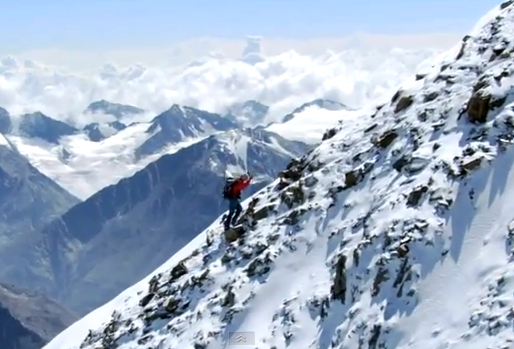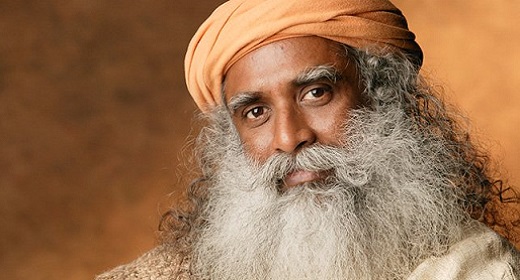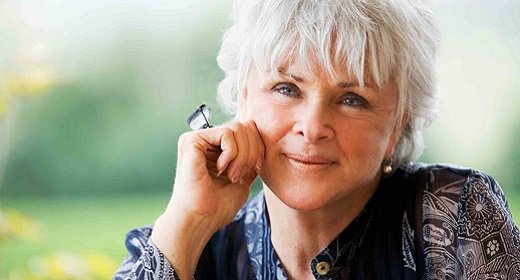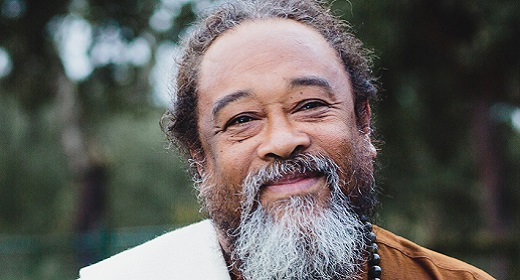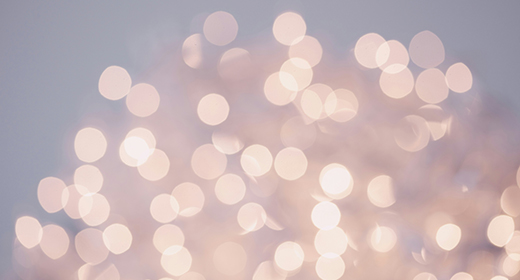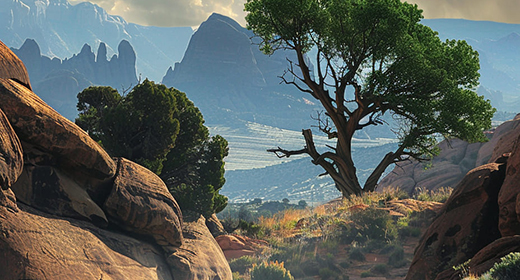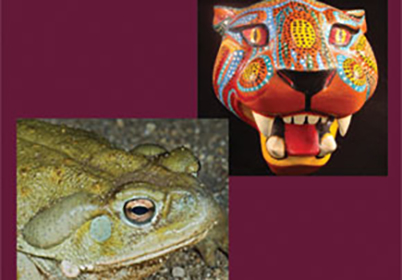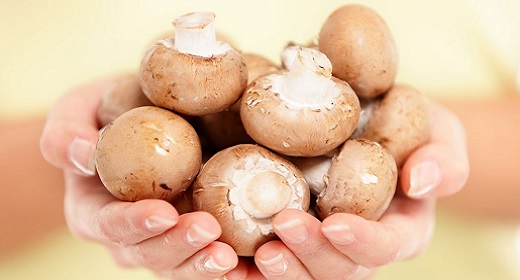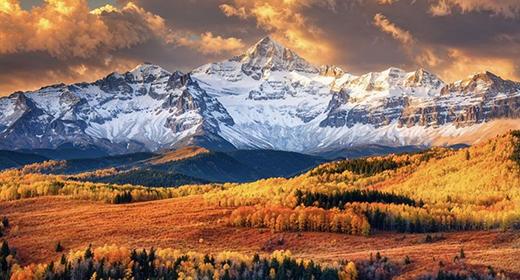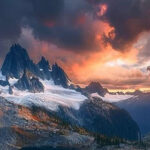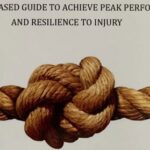Q: Catherine Ingram, you have been leading Dharma Dialogues in several cities in recent years. Can you summarize what you teach?
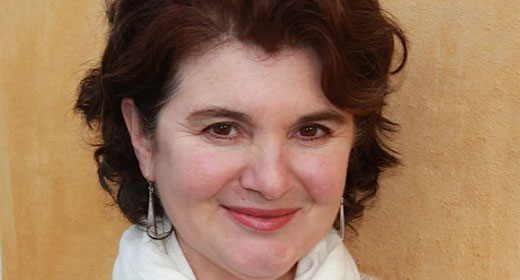
A: Yes, it is simply that freedom is to be found here and now, not in some imagined future. The future never comes. Freedom is simply to know that what we are is pure awareness. We are not merely this body or the steady barrage of thoughts that we tell ourselves. We are the pure awareness in which everything is arising and passing, and all of it is arising as pure awareness itself. So this is to know yourself as your own source even as you are living it; to have the attention placed on the source or on the pure awareness instead of on these fleeting occurrences of body and mind; to know yourself as the ocean and not merely the individual expression or the wave. We do not deny the individual expression- our “waveness” but we know ourselves in essence as the ocean. And in this knowing there is actually a great celebration of and a tenderness for the unique and fleeting manifestation of the wave.
Q: So are you saying that the individual life story is somewhat an afterthought to who we really are?
A: It doesn’t have to be considered an afterthought. It is fully embraced and included in a very big picture, a vast understanding of who and what we are.
Q: Having attended your Dharma Dialogues a number of times, I am aware that you don’t say, “Here are the teachings of this particular tradition, and they can be true for you,” but rather, you say, “This is what my experience has been.”
A: This is the gift of the teachings themselves. The experience is inherent, and we are each empowered to taste it and express it uniquely. It is a recognition, more familiar than anything else, more familiar than the sound of your own name. It is a sense of being prior to the arising of thoughts, prior to the story that you are telling yourself, which is akin to a self-induced trance. Prior to and shining through all of that is just beingness. When you are in deep sleep, there is just this beingness. As far back as you can remember, there was only this. Everything else has changed. So in this pure and simple sense of being we can rest. This is home base. the sanctuary, what some call freedom-recognition of that which is most familiar and abiding as that. And we can recognize this immediately, with no effort at all. It’s like those “Magic Eye” images that are all the rage fight now. The three-dimensional image is there all along; all you have to do is relax in order to see it.
Q: Do you think the ability to recognize that essential state of being is something you are prepared for by your experiences over time, in this lifetime or other lifetimes?
A: I can only speak from personal experience. I had seventeen years of Buddhist training before I met Poonjaji (my teacher), but I also know of others, young people, with no spiritual training whatsoever, who hear the message and get it. I don’t know how that works. It’s a mystery, or some kind of grace.
Q: You have said in your Dharma Dialogues that during your first visit with Poonjaji. you felt something that had been gripping you had fallen away. I know a lot of people feel locked in. not by their own choice or action, but rather by circumstances, or moods, or relationships, whatever. They feel gripped by forces beyond their control, whether these be external or internal, and the grip feels very real. Can this just dissipate?
A: Yes, because seeing, through the illusion of the grip, really seeing through it even once, releases its hold. The thoughts can come floating back in, but they no longer have the teeth, the power. You’re no longer in some struggle to get rid of the ego. As my friend Hanuman Golden says, “Trying to get rid of the ego is like trying to drain the water from a mirage.” When you see through the illusion of the sense of “I,” the old depressing story is not as interesting anymore. You realize it’s just about some fantasy you’re making up as you go along. The central character on which you’re hanging all the drama is an illusion. Now, you may choose to play with it, knowing that it is a drama. You may even choose to do some therapy now and then.
Q: You mean therapy in the Western sense, as in sitting and talking about your feelings with a psychotherapist?
A: Yes, or to talk about your feelings among your colleagues, with your partner, or with friends. But always with the recognition that this really isn’t the totality of who we are. This is simply an aspect of vast limitless awareness playing, in relationship.
Q: You have told me that you went through a particularly painful period of grief, even though you had previously had a powerful experience of awakening. What was the nature of that grief?
A: It was the loss of a relationship, and it was very painful. I had been living with someone and was engaged to be married. The ending of that relationship was profoundly sad. Now, had I gone through that just a few years earlier, I think it would have really broken me. Instead, the grief was there, the sadness was there, the tears were there, yet it all occurred in a very big context. It was like watching a thunderstorm of grief pass through the open sky.
Q: Did you feel also the ecstasy of beingness while this grief was passing through?
A: Yes, definitely. I would find that at one moment I would be soaring in emptiness, or at least floating, and the next moment I would be telling the story. The story had to be told for awhile, you see. It was like doing time. I had to honor that, not repress it or pretend some kind of lofty detachment. These forms come and go all the time. do they not? There is loss of form, whether it be relationship, home, or body. And because we so love these forms, there is sadness at their loss. This is natural. As Rumi said in his Matnawi, “Keep your intelligence white -hot and your grief glistening, so your life will stay fresh.”
Q: And this refers to something we talked about earlier, the woundedness of the sacred warrior or shaman. The woundedness of life to get us through. It seems that the pain, regardless of the source, the pain itself combined with the teachings, drove you to a deeper place to know the real.
A: Yes. As Trungpa Rinpoche said, “Suffering is manure for the field of Bodhi” -the field of wisdom. For me. the pain of that period was like a burning-up of thick veils. which had been obscuring true seeing, for a long time. I had had romantic obsessions since I was ten years old. which I now see as a yearning for divinity, be-cause that is the realm in which I had most tasted divinity. that intoxicating dissolution of separation. So this last painful ending was a grand culmination of that whole fantasy, and in that pain there was no place that I could be in peace except in the here and now, free and clear of a lot of thinking and ruminating about the story, the past, or the future. It forced the awareness into a kind of luminosity that had not been there.
Q: Yet some seem to get clear without a lot of suffering.
A: Oh yes, but living in this world we cannot help but observe a tremendous amount of pain. Whether we are identified or not, I think there is a case for the woundedness we all feel. As the identification shifts from the small self into a larger sense of self, we are forced to take on just by seeing, it, by feeling it, by having empathy for it, the pain of so-called “others.” I am leery of those who spiritually “up-level” and will look at a situation like Rwanda, for example. and say that it’s all just a dream, that the suffering of the Rwandan people is an illusion. It’s only fair to say something like that if you can be burned at the stake and say it then, and not if you still find yourself annoyed at petty problems and inconveniences. This is spiritual hypocrisy.
Q: Has this realization affected your choices of service or work in opening you to a greater world awareness and not just a personal or family involvement?
A: Well, I had been involved for many years in the world of activism, both as an organizer and as a journalist. But now it seems that whatever service is offered through me is not offered by me. I feel as though I am being played as an instrument on a more personal level rather than with the big global ideas I used to have, which were, in fact, often disconnected from my heart. Now it seems there is a more macrobiotic use of this instrument in that it is being played in my own immediate community. In Dharma Dialogues, I feel a heart-to-heart intimacy that is not future–based or goal-oriented or about trying to fix the world. I know a lot of activists of one sort or another and, frankly, I think a lot of them are motivated primarily by ego gratification, sort of as a modern day warrior caste. That’s not to say that there is no place for that kind of activity, but it sometimes makes more of a mess than it cleans up. Q: But would you say that as people get the message of “here and now” freedom, and as they open to a larger sense of self- without being driven primarily by ego- they work their sphere of influence from that understanding? A: Yes, of course. But this message places no emphasis on influencing others in particular ways. There is no missionary zeal. It’s just that the recognition of unity- same source, same essence- automatically brings with it love and compassion and a spontaneous response to suffering out of that love. Not me serving you, but self unto self. And paradoxically, there is a great expression of uniqueness as a result of this recognition. There’s a sense that each of us is being played as an instrument of the Divine in its own discrete way, however grandly or quietly. No two alike, and yet no two at all.
Q: During Dharma Dialogues, you often tell people not to postpone the taste of freedom. What do you mean by that?
A: So often people have beliefs that if they work hard enough and strive hard enough in their spiritual practice, they will someday attain enlightenment. Or once they get through this difficult period, or get the kids through school, or find a life partner, or find a guru, or make more money, or whatever, they will turn their attention to freedom. These are all forms of postponement. In fact, any distraction from this very now is a postponement of your taste of freedom.
Q: I spent some time in a Buddhist monastery. The teaching was that your little life is just one of countless incarnations and that you’re not going to attain enlightenment in this lifetime, so don’t even think about it.
A: That’s just somebody’s idea imposed on you. Whether there are other incarnations we cannot know. What we can know is what we can experience here and now, beingness itself. The rest is theory. This is another area in which there has been a tremendous shedding of spiritual concepts and baggage for me about things which neither I nor anyone can really know. It has been very refreshing to embrace the mystery rather than feel compelled to have answers about the unknowable. It allows a clear, more objective seeing.
Q: Sounds like a challenge to the religious establishment.
A: Well, I’m challenging beliefs, and most religions cherish their beliefs, so much so that they have often gone to war over them. Now, perhaps there are a lot of good people who hold their beliefs for generally wholesome reasons. But a lot of those beliefs are in place for reasons that have more to do with the continuation of the religion or the institution. I’m willing to challenge anything that cannot be tasted here and now, without conceptual frameworks and ideas. We are living in a glorious mystery. Isn’t that enough? Why add on massive belief structures which we cannot possibly know? I once interviewed Krishnamurti, and as I was about to ask him a question starting with, “Do you believe … ?” he interrupted me and said, “I don’t believe in anything.”
Q: I know you eschew the word “practice,” but is there some method, some training you suggest to out of the way,” as you put it?
A: I like to use simple terminology and speak about intention or remembering. Have intention to not indulge your “I” story. Pop out of your trance as soon as you notice being lost in it. Make a habit of that: that’s all that is required. Finally, all practice will come to that, and it will require that you get used to that in all situations, not just on your meditation cushion. I’m reluctant to use the word “practice” because it implies a goal or a lot of effort or repetitive motion using some technique. I see people identifying as the doer of their meditation practice: “I sat for two hours without moving,” “I’ve completed forty-five retreats,” “nineteen sessions,” and so on. Proudly waving the banner of spiritual achievement as if that had anything to do with freedom. What I’m speaking about is dropping the illusory myths of “I,” “me,” and “mine.” This is about subtraction rather than addition. Subtract what is not real and let the real shine through effortlessly, without obstruction
Q: You and I have been in a dialogue for some weeks about Andrew Harvey and his book The Wave of Passion: A Celebration of Rumi. Harvey himself is passionately involved with making Rumi’s message a reality for the way we live our lives now. It’s not just nice poetry from the thirteenth century.
A: No, it is contemporary. Seeing the Divine is in Bosnia, in the faces of the Los Angeles street gangs, and in the face of the newborn babe. It is manifesting in and as the suffering and the joy. There is nowhere, in truth, which is not shimmering with God. This is the mystic view. Anyone can see the glory while watching the sunset over the ocean. But the mystic sees it in the horror as well, even though it may still break one’s heart. Seeing the glory with tears in one’s eyes.
Q: Because the mystic also knows that what may look at one moment to be tragedy may have hidden beauty, unforeseen benefits, I have heard from numerous lamas, even the Dalai Lama, that the Chinese invasion was what drove the dharma out of Tibet to be shared with the rest of the world. This has allowed the teachings to flourish, and the teachings themselves have also broadened and changed as a result of coming to the West, according to many lamas.
A: Definitely, yes. The dharma is loosely translated as “the Way” or “the Truth.” Truth is ever flowing, ever fresh. It is not a static, fixed point in time or space. We take the great mystical visions from the great teachers of the past, and we eat what is fresh in them in the present. Andrew Harvey, in his celebration of Rumi, is speaking of having this love affair with the Divine in our time. fully awake to the horrors that are occurring on this planet. We cannot say that they are somehow separate. The only true healing that can occur in any sustainable way is through that mystical view. What is happening on the planet is wild. In many ways. we are more awake than we ever were. We now have the tools to express the message very fast. But the combination of an out-of-control worldwide population explosion and the despoiling of the land, air, and seas forces us into a crisis situation that means that we either must wake up or die in large numbers. lt’s already happening. This is already a time of crisis. However, people will not desist in greed and anger unless they are impelled by a recognition of unity and love from inside.
Q: Do you feel that people can really wake up without the help of a teacher? You often say that this recognition is immediately available, yet stories abound of the transmission being passed from guru to disciple, from master to student. You, for instance, met Poonjaji and woke up. So there is something profoundly powerful about being in the presence of one who has that awakening. Is that available through the printed word, for example?
A: Well. I ask you. what has been your experience in reading The Way of Passion?
Q: It’s a cascading yes and yes and yes. Doors are opening and I know it’s all true and it’s fantastic. Then I close the book and, within minutes, forgetfulness.
A: Yes, but the transmission was there. Of course, it’s not the same as sitting in the presence of a living master. That is like being in the presence of the burning bush. However, let us be grateful for the printed words of the mystics over the centuries. Maybe the wattage is not as strong as being in the presence of the burning bush, but you take what you can get. And you can become your own transmitter, as you know. I often say, have the intention to be always in satsang, always in truth-community. Have satsang with the breeze, with the birds, with your landlady, and especially with those who are hip to this. That is the sweetest of the sweet, a true celebration. Then every day is Christmas, and New Year’s, and Valentine’s Day, and Thanksgiving all rolled into one.

